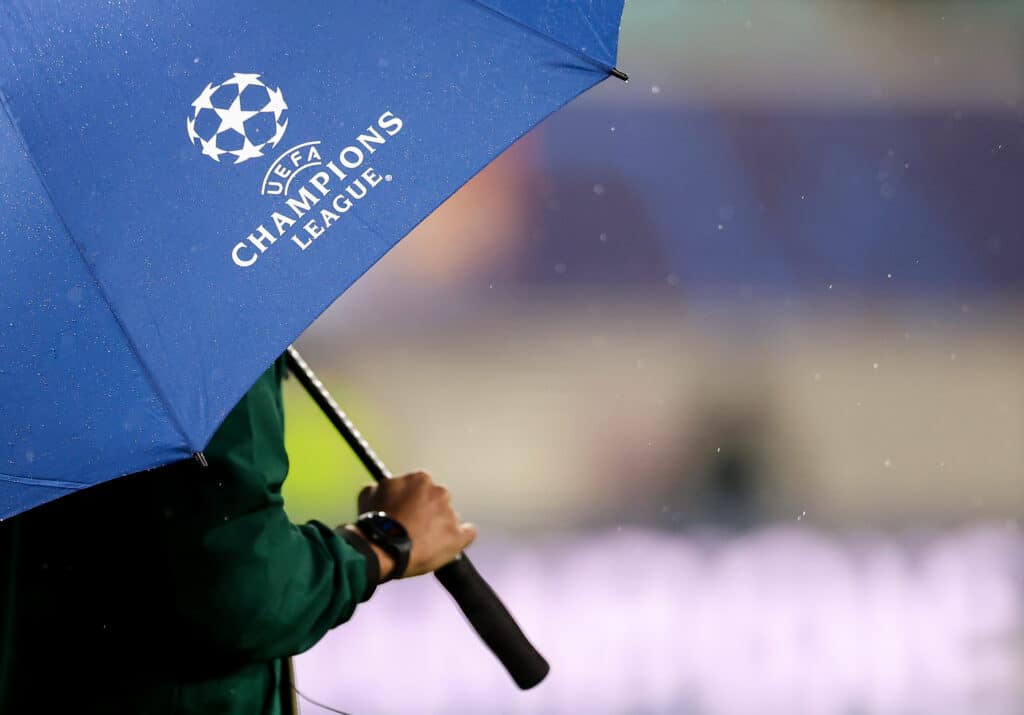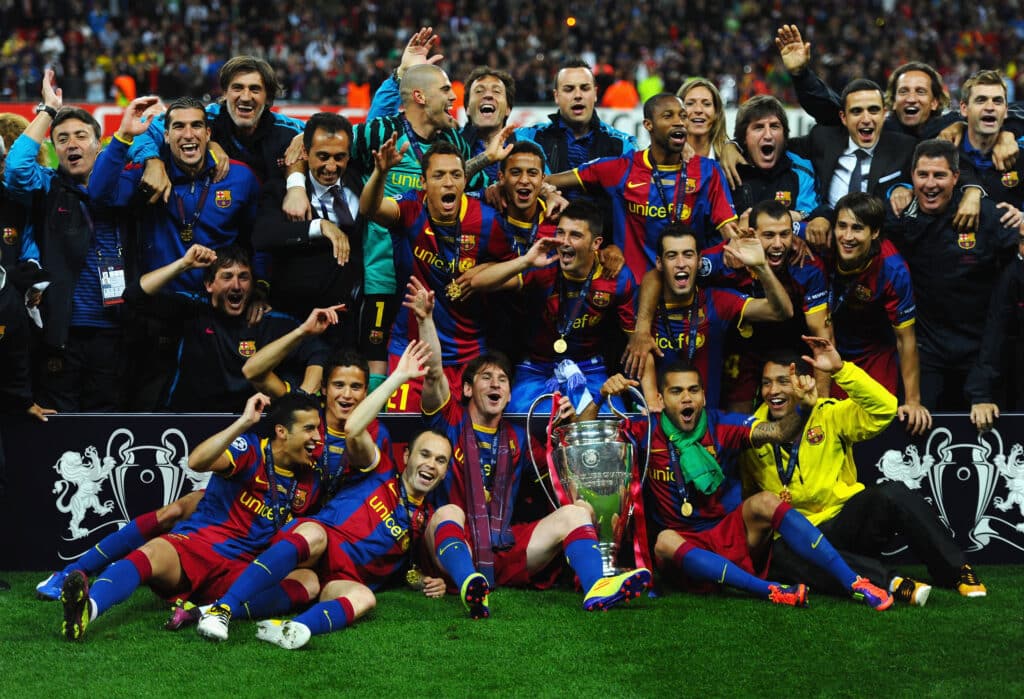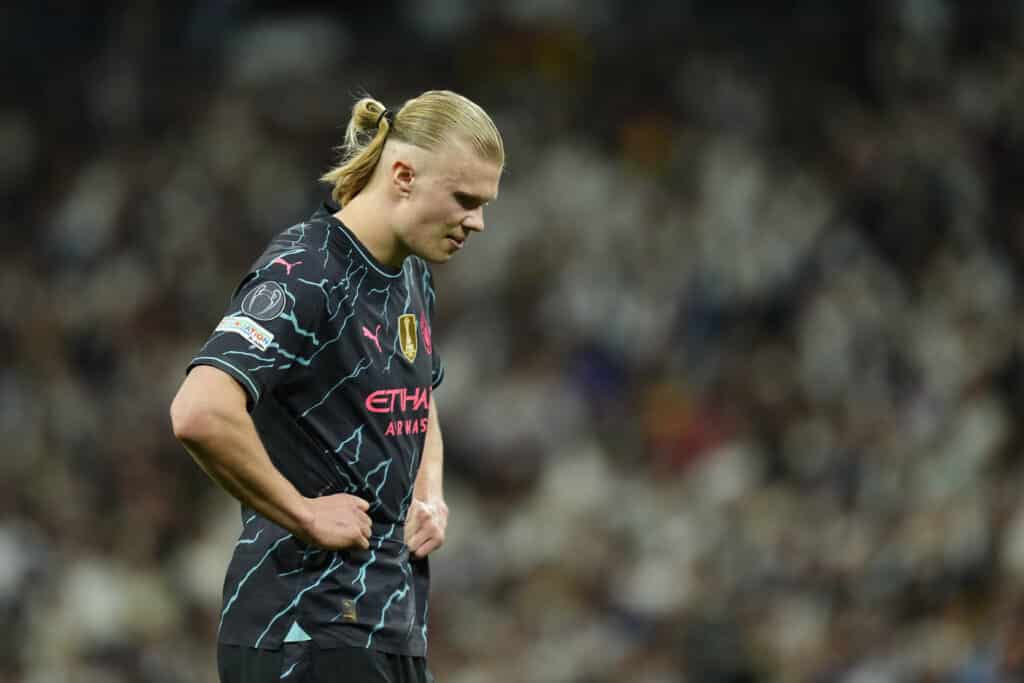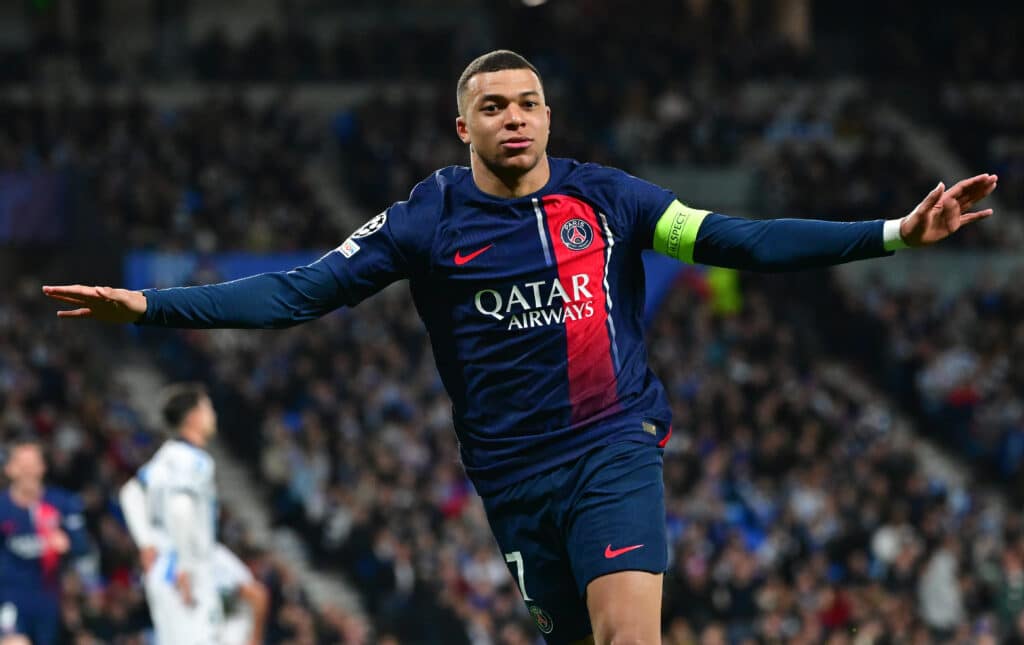
Introducing a new era in European football: The Champions League 2024/25 season is set to embark on a groundbreaking journey with a revamped format that promises excitement, drama, and unparalleled competition. Dortmund, PSG, Real Madrid, and Bayern Munich will all be fighting to win the last Champions League as we know it! As football enthusiasts eagerly await the kickoff, let’s delve into the intricacies of this innovative structure that aims to redefine the pinnacle of club football on the continent.
What you need to know
TLDR: How it Works
From UEFA: Under the new format, teams will play eight matches in the new league phase (former group stage). They will no longer play three opponents twice – home and away – but will instead face fixtures against eight different teams, playing half of those matches at home and half of them away. To determine the eight different opponents, the teams will initially be ranked in four seeding pots. Each team will then be drawn to play two opponents from each of these pots, playing one match against a team from each pot at home, and one away.
The top eight sides in the league will qualify automatically for the round of 16, while the teams finishing in 9th to 24th place will compete in a two-legged knock-out phase play-off to secure their path to the last 16 of the competition. Teams that finish 25th or lower will be eliminated, with no access to the UEFA Europa League.
The new format, with all the teams ranked together in a single league, will mean that there is more to play for all the way through to the final night of the league phase.
In the knockout phase, the teams that finish between 9th and 16th will be seeded in the knockout phase play-off draw, meaning they will face a team placed 17th to 24th – with, in principle, the return leg at home. The eight clubs which prevail in the knockout phase play-offs will then progress to the round of 16, where they will each face one of the top-eight finishers, who will be seeded in the round of 16.
To strengthen the synergy between the league and knockout phases, and to provide more sporting incentive during the league phase, the pairings of the knockout phase will also be partly determined by the league phase rankings, with a draw which likewise determines and lays out the route for teams to reach the final.
From the round of 16 onwards, the competition will continue to follow its existing format of knockout rounds leading to the final staged at a neutral venue selected by UEFA.
Also, in a new initiative, teams won’t be able to drop down into the Europa League if they perform badly in the Champions League. The tournaments are now more separated. In the past 11 years, four teams have won the Europa League having dropped into the second tier competition from the UCL (Chelsea 2013, Sevilla 2016, Atletico 2018, Sevilla 2023).
Champions League 2024/25: The Evolution Begins
Prepare for a seismic shift in the landscape of European football as the UEFA Champions League (UCL) gears up for a historic transformation in its format. The competition has scarcely changed since the late 1990s. The upcoming changes mark a pivotal moment in the tournament’s rich history, promising to revolutionize the way we experience elite club football on the continent. Now, the Champions League 2024/25 will be almost unrecognizable from its current format as the number of teams expands and the format changes.

Expanding the Battlefield: 36 Teams in the New UCL Era
The Champions League 2024/25 heralds a transformative era, characterized by an expansion from 32 to 36 participating teams in the league phase. This significant enlargement not only amplifies the scale of Europe’s premier club competition but also heralds a new dawn of inclusivity and opportunity for clubs across the continent.
By accommodating four additional teams, UEFA’s revamped format aims to democratize access to the Champions League, granting entry to a more diverse array of clubs. This expansion paves the way for emerging talents to showcase their skills on the grandest stage of European football, fostering a culture of inclusivity within the sporting community.
Moreover, the influx of new contenders injects fresh dynamism into the tournament, enriching the fabric of competition with a broader spectrum of playing styles, strategies, and narratives. Fans can anticipate thrilling encounters between established powerhouses and up-and-coming challengers.
Swiss Model: A Fresh Page in the Champions League Story
The UEFA Champions League has always represented tradition and prestige. However, the winds of change are sweeping through the tournament’s landscape, ushering in a new chapter characterized by innovation and dynamism. At the heart of this evolution lies the adoption of the ‘Swiss model’ for the group stage a groundbreaking shift that promises to redefine the very essence of elite club competition.
Unlike the traditional group stage setup, which featured 32 teams divided into eight groups, the Swiss model introduces a dynamic league phase where 36 clubs vie for supremacy in a single, unified competition. This departure from convention not only expands the tournament’s scope but also injects a renewed sense of excitement and anticipation into every fixture.
Under this innovative structure, teams will face a diverse group of challengers drawn from different seeding pots, resulting in a broader range of matchups and strategic encounters. Each club will engage in eight enthralling contests, navigating a twisted landscape of competition where every point earned carries profound implications for their journey to glory.
By embracing the Swiss model, the Champions League offers a platform for unprecedented spectacle and drama, where traditional powerhouses collide with rising stars in a symphony of skill and ambition. Fans can relish the prospect of witnessing top-tier clashes between revered giants and emerging talents, as the tournament transcends boundaries to deliver a truly global spectacle.

Champions League 2024/25 Draw: The Mechanics of Competition
The first draw for the ‘league’ (group) stages under the new format will take place on the 29th of August 2024.
| Matchday 1 | 17th–19th of September 2024 |
| Matchday 8 | 29th of January 2025 |
| UCL Final | 31 May 2025 |
Who will qualify? Check the UEFA Coefficient Table & Association club coefficients
‘Tennis-Style’ Draws: A New Chapter in UCL Knockout Stages
In a nod to the precision of tennis tournament seeding, the UEFA Champions League 2024/25 introduces a ‘tennis-style’ draw system for the knockout stages, ensuring strategic placement of top-performing teams from the league phase. This innovative approach mirrors the methodology seen in tennis competitions, where rankings dictate the positioning of contenders in the draw, thereby fostering matchups that promise heightened excitement and competitive balance. Much like in tennis, where top seeds are strategically placed to avoid early clashes, this system aims to maximize the intrigue and spectacle of the Champions League knockout rounds, while maintaining the integrity of the competition.

The Rationale Behind UEFA’s Champions League Reforms
The rationale driving UEFA’s Champions League reforms reflects a multifaceted approach aimed at addressing several key objectives.
Firstly, the emphasis on enhancing competitiveness underscores UEFA’s commitment to fostering an environment where every club has a genuine opportunity to thrive on the European stage. By expanding the tournament’s format and introducing the Swiss model for the group stage, UEFA seeks to level the playing field, allowing a broader spectrum of teams to compete against one another and ensuring that success is determined by merit rather than historical pedigree alone.
Furthermore, the reforms are crafted to ensure fair play and sporting integrity throughout the competition. By implementing measures such as the ‘tennis-style’ draw system for the knockout stages, UEFA aims to mitigate the potential for lopsided matchups and fortuitous pairings, thereby safeguarding the integrity of the tournament and upholding the principles of fairness and equity.
Lastly, UEFA’s Champions League reforms are a proactive response to the evolving landscape of European football, where the sport’s global appeal continues to expand, and the demands of fans, clubs, and stakeholders evolve. By embracing innovation and adapting to changing dynamics, UEFA demonstrates its commitment to remaining at the forefront of football governance, ensuring that the Champions League remains the pinnacle of club competition while resonating with audiences worldwide.
The Future Is Bright: The Impact of Changes on European Football
UEFA’s Champions League reforms signal a seismic shift in the landscape of European football, promising a future brimming with opportunity and excitement. For teams, the expanded format offers a stage to showcase their talents against a diverse array of opponents, fostering growth and resilience in an atmosphere of heightened competition. Players, too, stand to benefit from the prospect of thrilling encounters and iconic moments, as they navigate a landscape ripe with opportunity and ambition.
Yet, it is the fans who emerge as the true winners, with the Champions League evolving into even more of a beacon of excitement and entertainment. With more diverse matchups, heightened drama, and increased stakes, the tournament captivates audiences worldwide, reaffirming its status as the pinnacle of club football. As UEFA’s reforms take root, European football embarks on a journey of growth and transformation, propelled by innovation, inclusivity, and a shared passion for the beautiful game.

Read more about which league might get extra Champions League 2024/25 spots next year and more about the new format in our magazine!
By Nicky Helfgott / @NickyH3lfgott on Twitter
Keep up with all the latest football scores and news on the 365Scores website and app!



